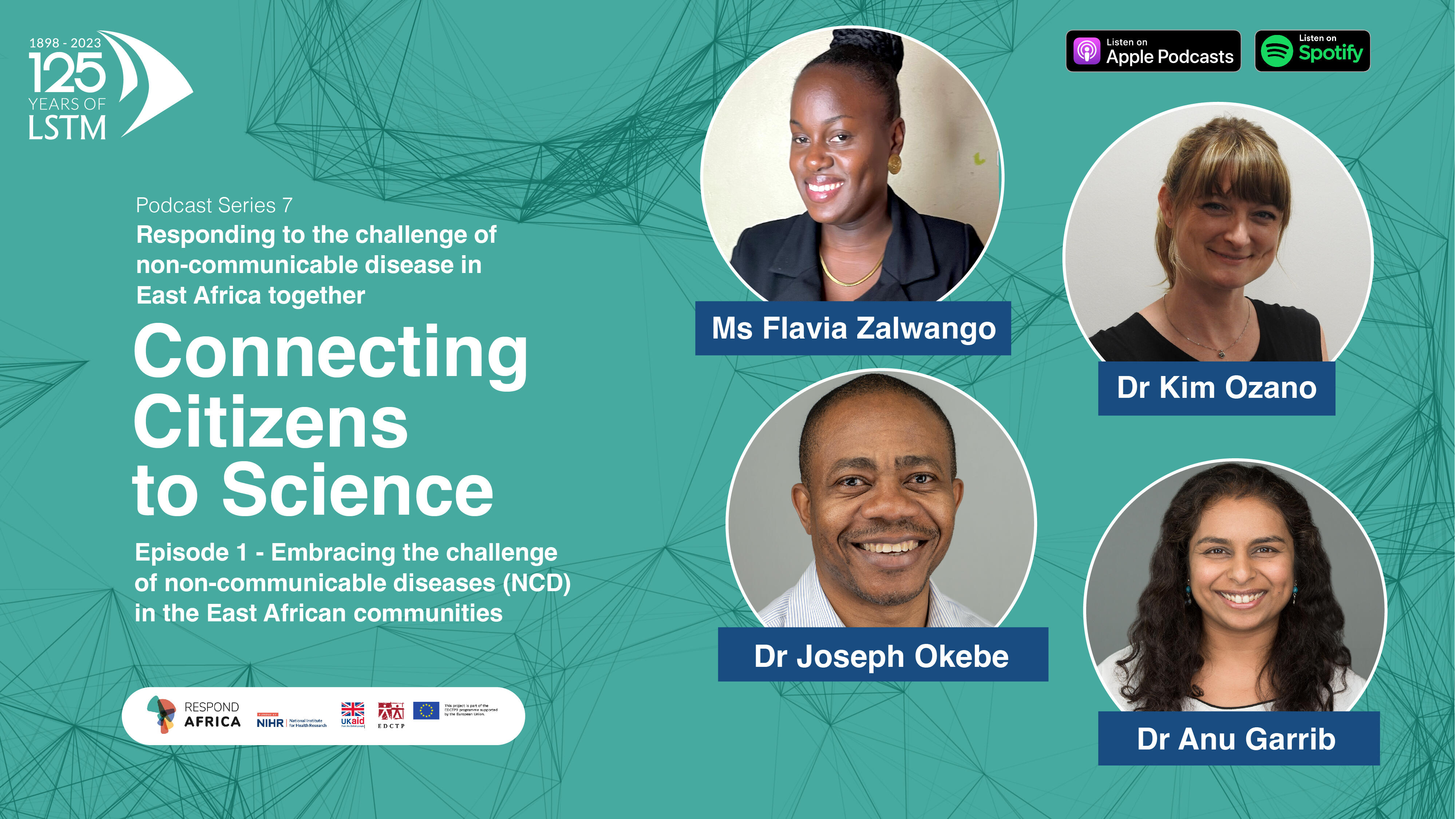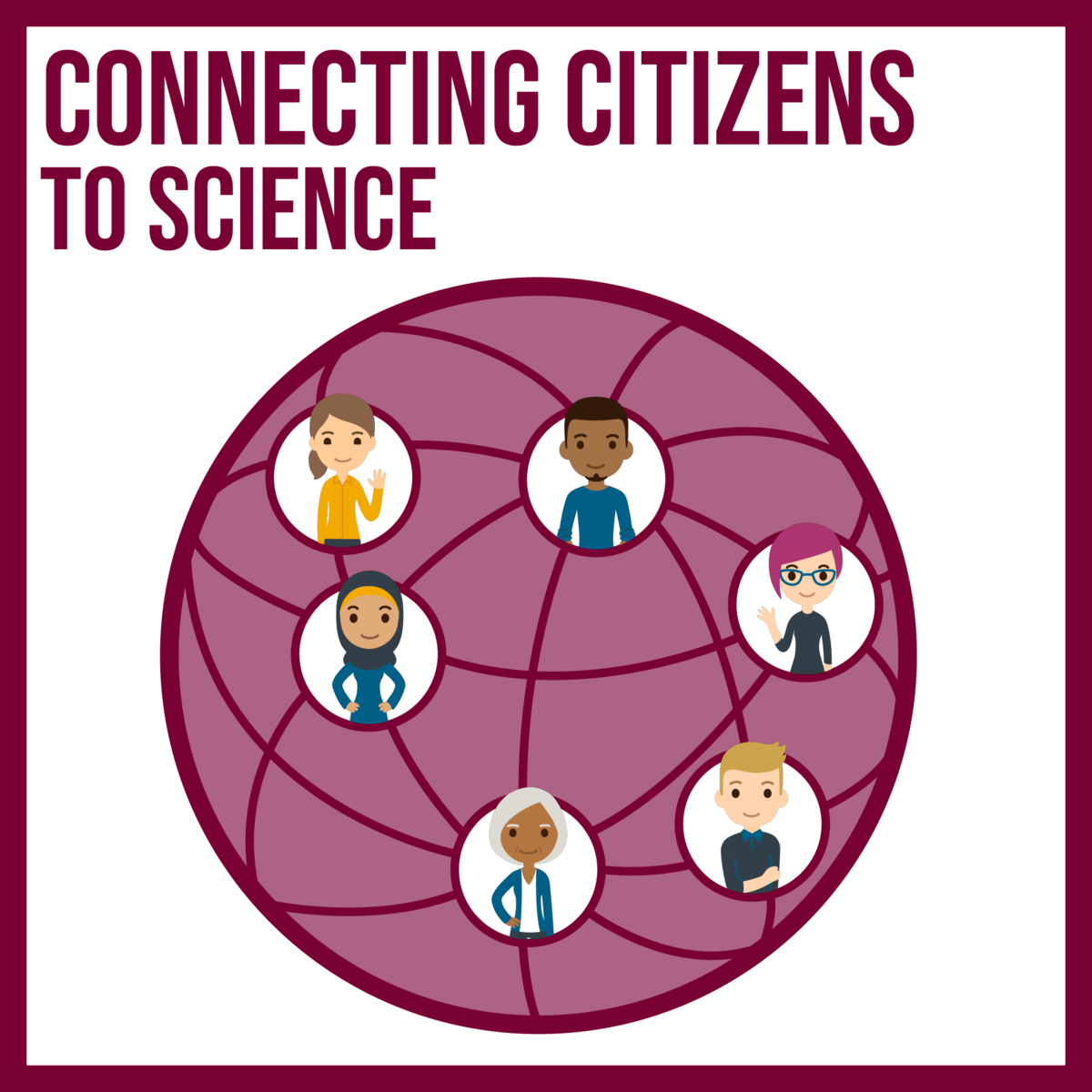
In this series we are talking about responding to the challenge of non-communicable disease in East Africa together
In recent decades, rates of non-communicable diseases (NCD), such as diabetes and high blood pressure have risen sharply in sub-Saharan Africa and are now linked to approximately 2 million deaths per year. Countries across the continent are rapidly looking to address this new epidemic, but this is difficult with much of the healthcare system still focused on the treatment of communicable disease, such as HIV. This podcast series will explore many aspects of the problems related to NCDs across sub-Saharan Africa, including how African & European researchers from the RESPOND-Africa group, and healthcare providers and governments in East Africa are working with local communities to better understand the issues related to NCDs and how we can best address their care. In particular, we’re interested in how integrating the care of NCDs with other, currently well treated conditions, like HIV can benefit the patients and local healthcare systems by improving care whilst saving them both time and money.
In this week’s episode we hear from Dr Flazia Zalwango from the Medical Research Council/ Uganda Virus Research Institute and LSHTM and from Dr Anu Garrib, a consultant in public health medicine working at LSTM in the RESPOND Africa/NIHR Group for the prevention and management of HIV-infection and non-communicable diseases. Our guests discuss:
- Barriers to engaging community groups across the life cycle, including children, adolescents, and older people to inform prevention, treatment and management of disease conditions like NCDs.
- How to best engage policy makers in research uptake
- The problem of NCDs in sub-Saharan Africa and how they are being addressed currently
- How communities can be involved in addressing the problem of NCDs going forward
- Why and how can integrated NCD & HIV benefit these communities
Our guest host for this series is Dr Joseph Okebe
Senior Research Associate, LSTM
My research looks at how primary healthcare services for people living with chronic health conditions such as diabetes, HIV-infection and hypertension can be improved. We recently completed a study in Tanzania and Uganda where we looked at the impact of having all these services together in the same clinic affect patient’s retention in care and control of their health conditions.
https://www.lstmed.ac.uk/about/people/dr-joseph-okebe
twitter@ jo_okebe
Linkedin: https://www.linkedin.com/in/joseph-okebe-a049399/
Dr Anu Garrib
Principal research associate, RESPOND-Africa partnership, LSTM
I am a consultant in public health medicine and have been working at LSTM in the RESPOND Africa/NIHR Group for the prevention and management of HIV-infection and non-communicable diseases in Africa since 2017.
My current research focusses on evaluating strategies for the integrated delivery of HIV and non-communicable disease care, as well as clinical studies on the prevention of diabetes. The study on integration of HIV and NCD services was a feasibility study aimed at determining if an integrated delivery of care for these conditions was acceptable to patients and healthcare workers, and involved extensive engagement with these groups to determine how best to structure the service. Although the clinical trial is a very different kind of study, the continued engagement of patients is critical as we try to determine how best to support patients so that they are able to continue the trial treatment for an extended period. Wider communication within the community and engagement with community leaders about aims of the trial is really important to pre-emptively address concerns that patients and their families may have about participation in a trial such as this. These are ongoing conversations. Care for non-communicable diseases is lifelong and what we learn in trials about supporting patients with adherence to treatment will be valuable, regardless of the outcome of the trial itself.
Dr Anupam Garrib | LSTM (lstmed.ac.uk)
Welcome and meet the team | LSTM (lstmed.ac.uk)
Twitter: @AnuGarrib
Ms Flavia Zalwango
Social Scientist, Medical Research Council/Uganda Virus Research Institute and LSHTM
Over the last 14 years, I have undertaken research involving women at high risk of HIV and STIs, older adults, adolescents and children, focussing particularly on the impact of HIV on their lives and the management of HIV as a chronic condition. I am currently involved in conducting research on integration of NCD and HIV care at selected clinics in Uganda. I work with a team of researchers who interact directly with the patients, healthcare providers, community leaders, and policy makers in order to generate the evidence at a multi-stakeholder level. We are also working closely with our collaborators from the UK.
Twitter: @KabuyeFlavia

This is a podcast in the series: Connecting Citizens to Science,which focuses on health research based on equitable partnerships between researchers and communities.